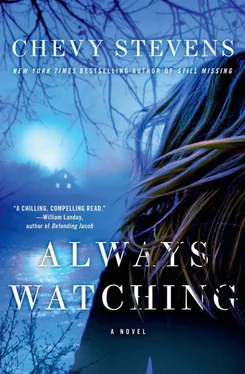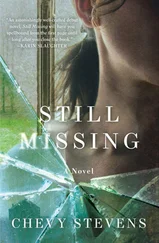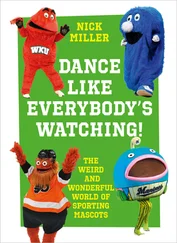“Do you think this could be dangerous, though?”
“Not at the moment…” I told him what I’d also told Mary, that Aaron wouldn’t want to draw negative attention. But while I spoke, I thought again about the green truck, the feeling of being watched, and wondered if Aaron did have someone keeping an eye on me. I decided to keep that possibility to myself.
When I was finished speaking, Kevin nodded in agreement. “Yes, that makes sense.” He paused, thinking as he chewed a bite of his sandwich, his eyes narrowed. “The members I met from the center seemed decent—I’m sure they have no idea about Aaron’s sexual abuse or his brother’s history of violence.”
“That’s my thought too, that there’s the center—and then there’s Aaron.”
He nodded again. “Still, it might be a good idea to be careful who you talk to and what you say.”
He was right. I needed to be more careful, especially if Aaron was watching me, but I couldn’t stop now, not when I was finally getting somewhere.
“I will. Thanks.”
We talked for a while about a program he was starting for young men who have lost their jobs, something he connected with because of his own experience as a youth, and how he found relating to them to be the first step in gaining their trust. We also spoke about my patient, Brandon. I found his project interesting and a good diversion from thinking about the commune. We’d been talking for so long that I was startled when I glanced at my watch and realized my lunch hour was over, a thought that was followed with disappointment.
“Shoot. I should get back to work.” I stood up, grabbed my empty tray with one hand. “Thanks for keeping me company.”
Kevin also looked disappointed, which made me happy for some inexplicable reason. He said, “Sure. If you ever need an ear—you know where to find me.”
“Thanks. I’ll keep that in mind.”
I had walked all the way to the elevator and was starting up to the first floor before I remembered my next appointment was on the ground level.
After work, I went home to grab a quick bite to eat, forcing myself through the motions, my stomach muscles tight with the idea of talking to another woman who shared my experience. Tammy lived in Fernwood, an older neighborhood near downtown, and not very far from my place. When I knocked on the back door of her lemon-colored Victorian house, I noticed that most of the paint was peeling, and they were in the process of fixing up the back deck. An older car sat in the driveway with two flat tires. Tammy opened the door, a smiling blond baby boy on her hip. She was a sweet-looking woman: round-faced, no makeup, brown hair pulled back into a scattered ponytail, and a fine dusting of freckles that gave her a youthful look. But she was probably in her mid-thirties, judging by the lines at the corners of her eyes.
She said, “Come in. House is a mess, though.”
“That’s perfectly fine.”
I walked into the kitchen, carefully taking my shoes off, and said, “Your home’s gorgeous.”
She turned around from the coffeepot, her face pinking with pleasure. “Thanks. It’s going to take a long time to get it where we want it, but you know.” She shrugged. “Babies take priority.”
“It looks like you’ve done a lot of work already. I love the treatment on the cupboards.”
“Thanks.” She smiled as she glanced at them. “I did that myself.”
She’d done a nice job. I imagined her carefully painting each cabinet, screwing on the glass doorknobs, making a home for her family. I felt a twinge, remembering that when I was pregnant with Lisa and close to my due date my nesting instinct had been so strong, I’d made Paul repaint most of the house, something he did with a smile, even while cursing my hormones.
Tammy put her baby in a playpen in the corner, poured us each a coffee, and sat across from me. She studied my face, hers intent, with her body leaning forward—a good sign. She was open to talking.
She said, “So you lived at the commune too?”
I nodded. “Yes, back in the late sixties, when they were in Shawnigan Lake. I was hoping you could tell me about your experience. You have a sister?”
She gnawed at her lips and glanced at the door. I followed her gaze. “Does your sister live with you?” Maybe she was expecting her home.
“No. She went back to the commune.”
I stared at her in surprise. I hadn’t anticipated that.
She said, “I didn’t tell the cop because I didn’t want him to try to contact her in there and get her upset at me. She doesn’t call anymore because she knows I want her to leave.”
“Why do you want her to leave?”
Now she sat back in her chair a little, putting some distance between us. Hands tight around the mug as she eyed me, suspicious.
I said, “Is it Aaron you’re concerned about?”
She said, “He’s important, like in the community and stuff, not just at the center. People really like him.”
Testing me, seeing how I feel about Aaron.
“Some people do, yes, but I’m not one of them.”
Again she gnawed on her lip, looked around, and hunched her shoulders like she was trying to pull in on herself. “He’s not what people think.”
“No, he’s not. You’re right.” I was relieved to talk to someone else who saw Aaron for what he truly was—a fraud. I took a breath, let it out slowly. I hadn’t realized how alone I’d felt in my thoughts, and in my fears.
“We were only there because of our parents—that’s why Nicole went back. They wouldn’t leave, and she missed them.” Before I could inquire further, she said, “As long as I’m out here, they won’t have anything to do with me.” She looked at her child, playing in the crib. “They’ve never met Dillon.”
“I imagine that’s been very hard for you.”
She sighed and turned back to me. “My husband, he knows about my time in there. But he doesn’t like to talk about it. He and Dillon are my family now.” I wondered at that, if those were his words or hers, wondered what kind of husband wouldn’t let his wife talk about something that was so obviously important.
“When did your family join the commune?”
“Nicole was ten, and I was twelve. Our younger brother died of leukemia, and our parents joined a support group. There was another woman there, Joy, she’d also lost a son, and she told them about a retreat she’d gone to that helped.”
Joy. I remembered her well. I wondered if her child really had died or if her story had just been a ruse to connect with new recruits.
I said, “Does Aaron get many members from support groups?”
“I guess so—a lot of them have lost family. We also get street kids and drug addicts. Aaron doesn’t charge them. He just picks a few each year to come live at the commune, people he says need our help the most.”
Fear made my back stiffen in my chair. Would he find Lisa? I forced myself to relax. Lisa wouldn’t go near a spiritual center.
Tammy was still talking. “He says most people’s problems come from a fear of death, that’s what causes anxiety, depression, drug addiction, and all that. He said that if everyone understood what a beautiful place they’d go to when they died, they’d live better lives down here.”
Unless they had the bad luck to meet Aaron.
I said, “The commune seems to have expanded into other countries.” I didn’t want to tell her how much I knew from my online research, preferring to hear it from her. “When did that happen?”
“Aaron said that we needed to reach more people. More bad stuff was happening to the earth, and we needed to help. He picked members and sent them around the world to start new communes. He always knew who was the most committed to their practice, or if anyone said anything against the commune.”
Читать дальше












